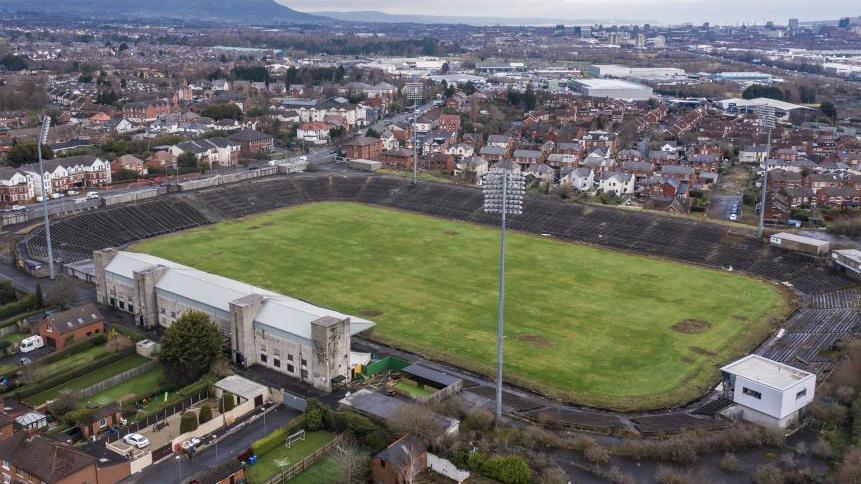What went wrong with the Casement Park project?
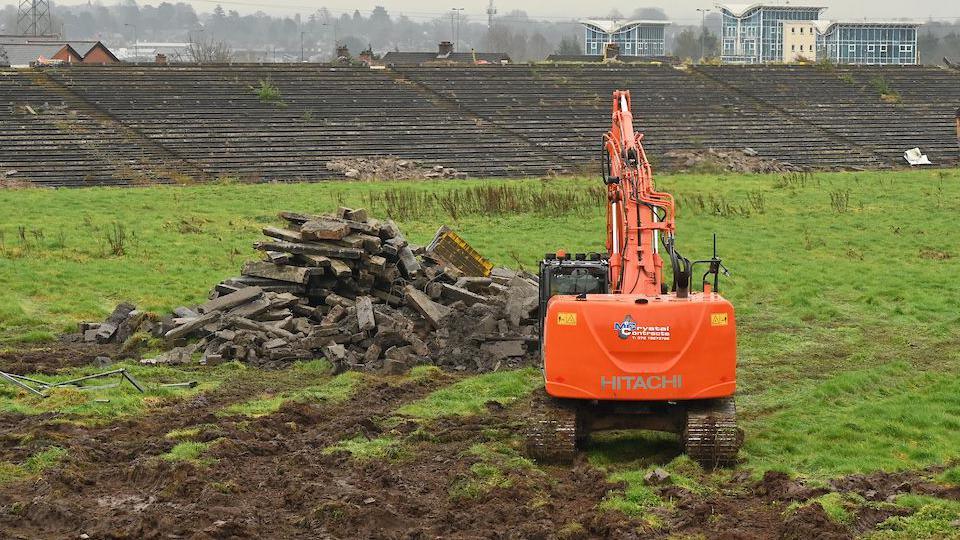
Major preparatory grounds work got under way at Casement Park in west Belfast in March
- Published
The main difficulty with the proposed 34,500-capacity Casement Park stadium in west Belfast is that it is too big.
Too big to build in time for the Euro 2028 football tournament
Too big for the sporting authorities to afford the bill to pay for it.
And also, some believe, too big an issue for politicians in Northern Ireland to handle.
Size, time, money, and politics have all played their part in ensuring that the redevelopment project has not got off the ground.
Planning approval overturned
At the outset, the GAA wanted to build a 38,000-capacity stadium, but planning approval was overturned in 2014.
A smaller stadium with a different design was then drawn up and subsequently given the green light.
Nonetheless, with a proposed capacity of 34,500 and a modern specification, it was never going to be built cheaply or quickly.
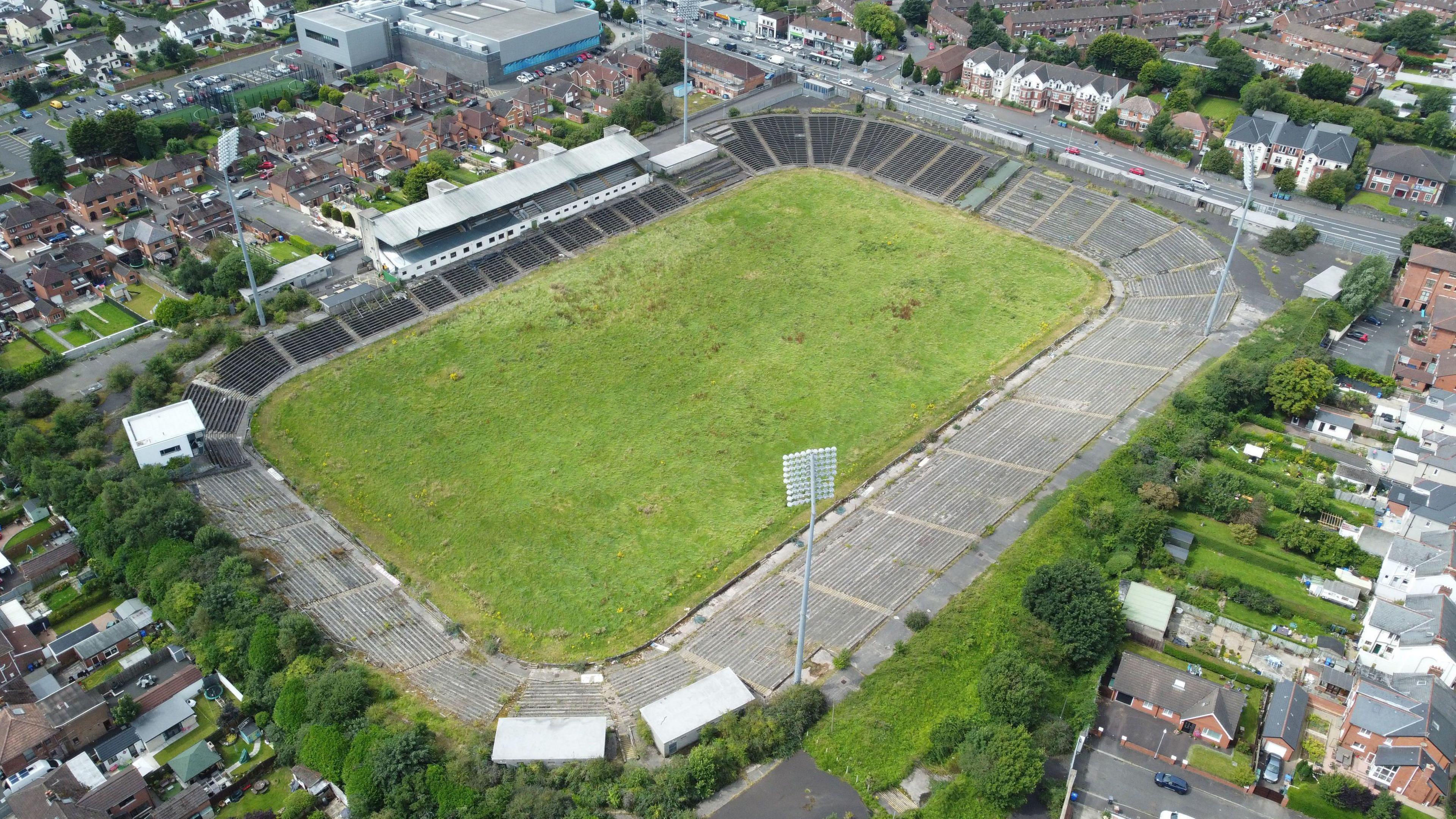
The GAA had initially wanted to build a 38,000-capacity stadium but planning approval was overturned in 2014.
It was not until the summer of 2021 that the new stadium was given formal approval.
Even then, it still had to fend off another challenge from a group of local residents who objected to its size and impact on the surrounding area.
The Covid-19 pandemic also slowed everything down.
Nonetheless, with planning approval agreed, the way seemed clear for the redevelopment, and it was confirmed in 2023 as a venue for the forthcoming Euros in 2028 in the UK and Ireland.
The tournament organisers, UEFA, made it clear; however, the stadium needed to be built by summer 2027 to allow time for test events to ensure the venue was capable of hosting international games.
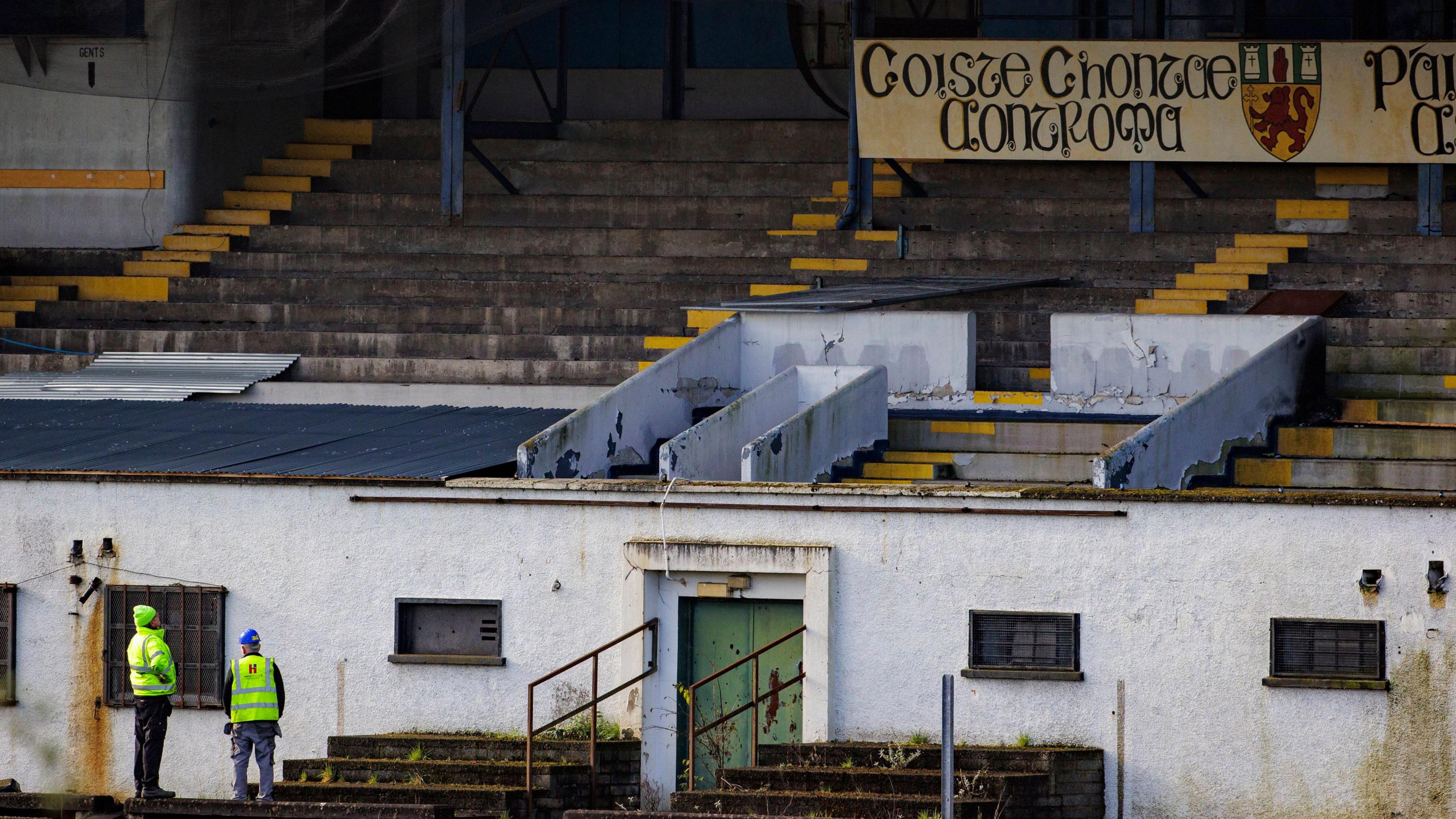
To construct a GAA stadium, which does not need the UEFA specifications, could cost up to £200m or £250m
Rising costs
With every month that passed, the potential construction bill went up and up as the cost of building materials rose rapidly.
All of a sudden, the original price tag of £77.5m would hardly pay for one of the grandstands.
The UK government now estimates the potential cost will be more than £400m.
There is even a suggestion that it could be closer to £450m than to £400m in order to meet the specification required by UEFA.
To date, only a fraction of that money is available, a long-standing commitment of £62.5m from the Stormont executive, £15m from the GAA, and approximately £43m from the Irish government.
The UK government was being asked to foot the rest of the bill, or at least the majority of it.
At the same time, the shrinking timetable meant a risk of spending big money but missing the deadline for the tournament.
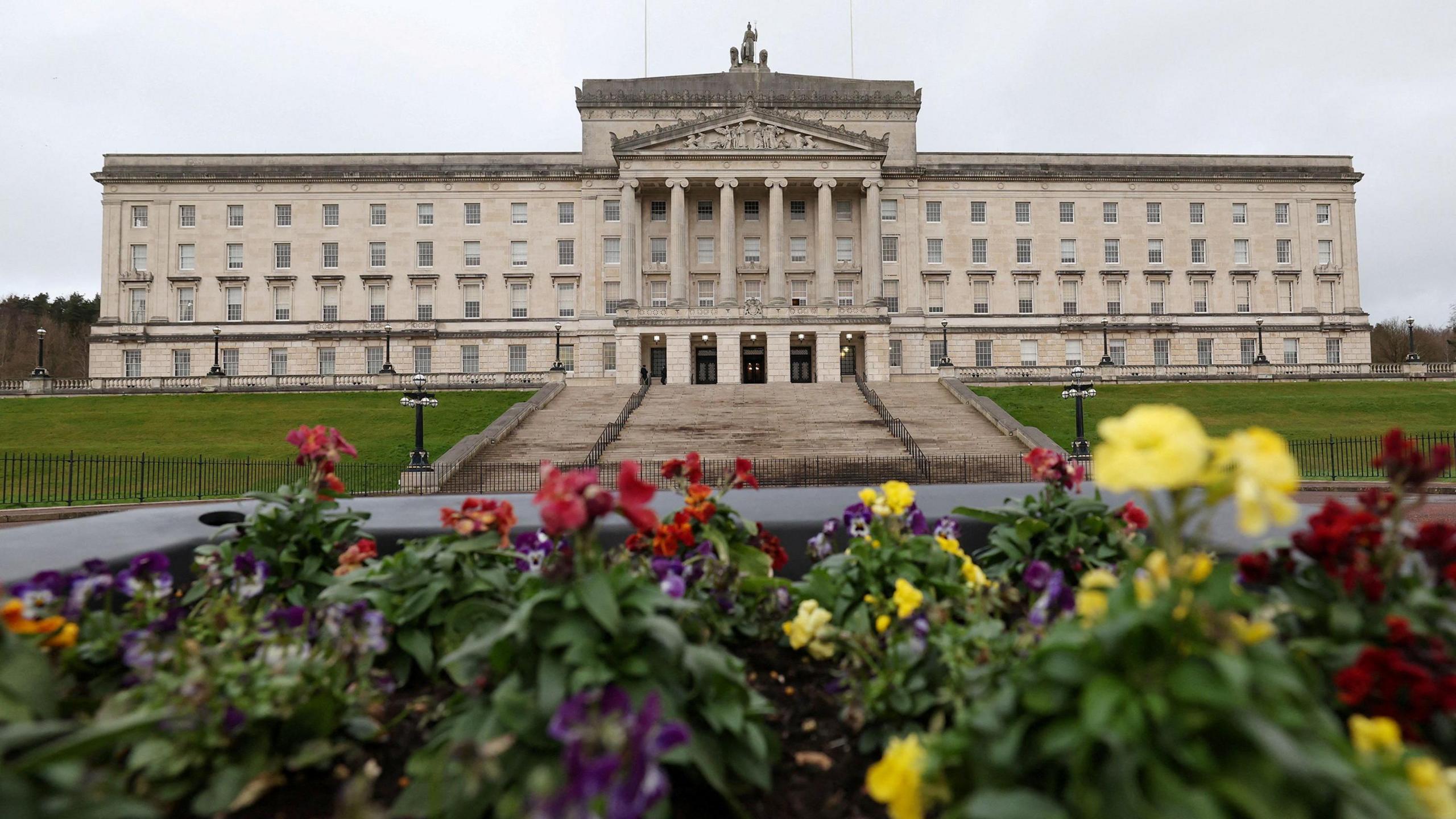
The redevelopment of Casement Park has been more of a priority for nationalist parties than unionist parties
Political blame game
The rise and fall of devolution at Stormont in the past decade, with long periods without ministers, has been a constant problem for the Casement project.
The redevelopment has been more of a priority for nationalist parties than unionist parties.
Within sporting circles, there is a view held by some that if politicians had worked better together, Casement would have been built by now.
One of Belfast’s most popular pastimes is likely to be played in the coming days—the blame game.
Nationalists will say the Casement redevelopment should have had much more support.
Unionists will say the project was badly managed 10 years ago, and that is where it all went wrong.
Is it the final whistle?
Sinn Féin is the largest political party in Northern Ireland and has made it clear that a new Casement Park should be built - and will be built.
To construct a GAA stadium, which does not need the UEFA specifications, will not cost £400m. But it may well cost more than £200m, or £250m.
As mentioned above, that amount of money is not yet on the table.
Will the UK government make a contribution? Their most recent statement does not rule it out.
Will the Irish government and the GAA dig deeper? That is also a possibility.
At the same time, there is also a deeper question – is the GAA’s patience with the Casement project wearing thin?
Their statements in the coming days will be studied closely.
It seems the final whistle has blown on the dream of Euro 28 football matches at Casement, but there is still a lot to play for.
Once again, all eyes will be on the time, the money and the politics.
Related topics
- Published14 September 2024
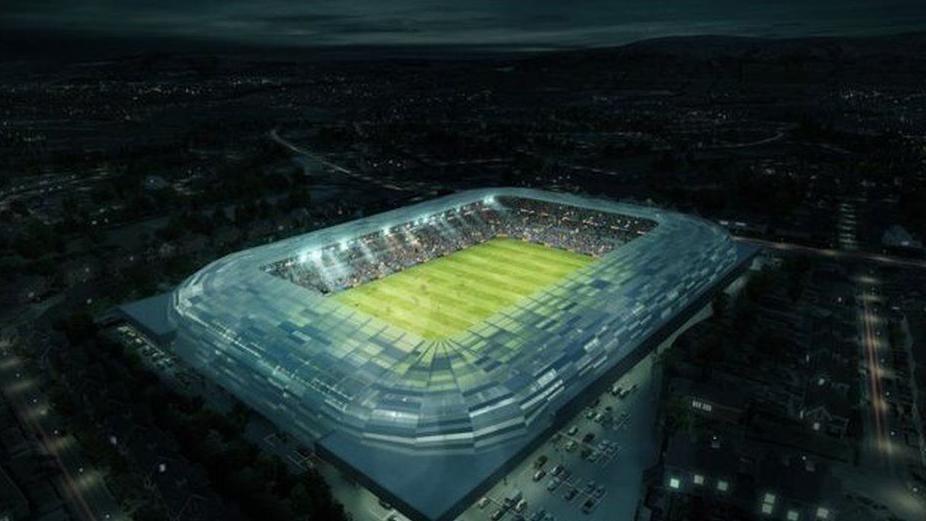
- Attribution
- Published14 September 2024
